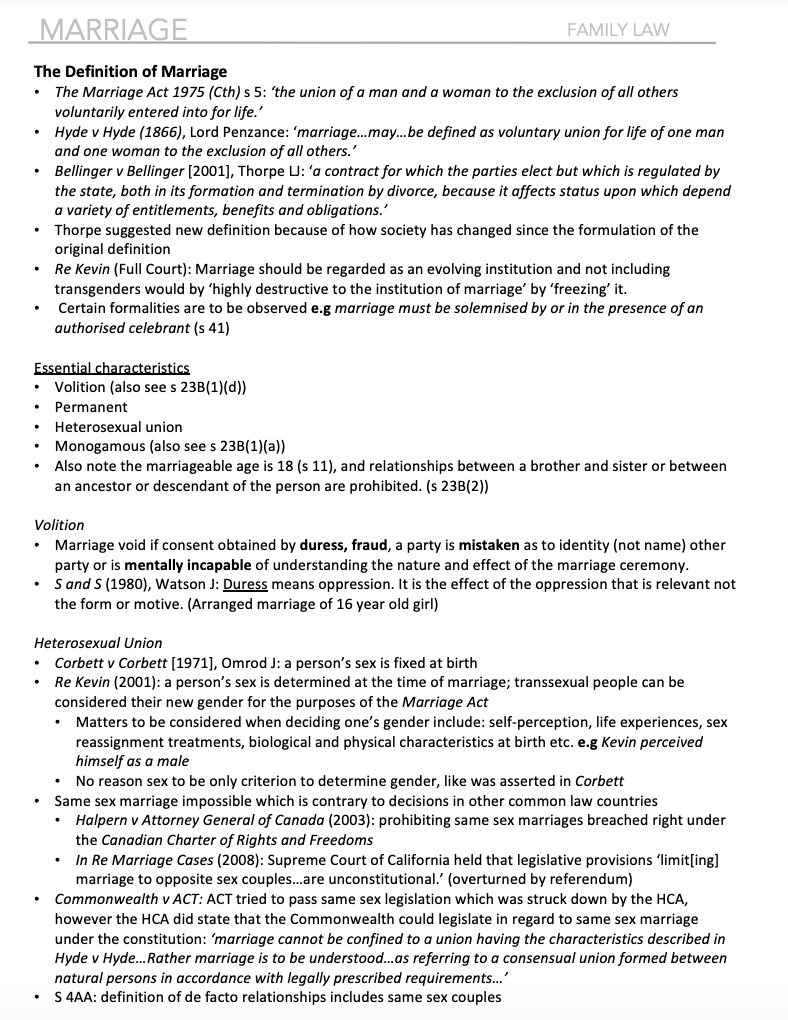Family Summary Notes
Summary:
This set includes notes on:
-Marriage (includes discussion on the definition)
-De Facto Relationships
-Property Distribution
-Family violence
-Spousal Maintenance
-International Child Abduction
-Living Arrangements after marriage breakdown
-Relocation
-Decisions affect children (including the best interests principle)
These notes note and explain relevant provisions of the Family Law Act and Victorian legislation where relevant. Cases are also provided with citations and succinct explanations of the facts and holdings.
Excerpt:
Family Summary Notes
MARRIAGE – FAMILY LAW
The Definition of Marriage
• The Marriage Act 1975 (Cth) s 5: ‘the union of a man and a woman to the exclusion of all others voluntarily entered into for life.’
• Hyde v Hyde (1866), Lord Penzance: ‘Marriage…may…be defined as the voluntary union for life of one man and one woman to the exclusion of all others.’
• Bellinger v Bellinger [2001], Thorpe LJ: a contract for which the parties elect but which is regulated by the state, both in its formation and termination by divorce, because it affects status upon which depend a variety of entitlements, benefits and obligations.’
• Thorpe suggested a new definition because of how society has changed since the formulation of the original definition.
• Re Kevin (Full Court): Marriage should be regarded as an evolving institution, and not including transgenders would be ‘highly destructive to the institution of marriage’ by ‘freezing’ it.
• Certain formalities are to be observed, e.g. marriage must be solemnised by or in the presence of an authorised celebrant (s 41).
Essential characteristics
• Volition (also see s 23B(1)(d))
• Permanent
• Heterosexual union
• Monogamous (also see s 23B(1)(a))
• Also note the marriageable age is 18 (s 11), and relationships between a brother and sister or between an ancestor or descendant of the person are prohibited. (s 23B(2))
Volition
• Marriage void if consent is obtained by duress or fraud, a party is mistaken as to identity (not name) another party or is mentally incapable of understanding the nature and effect of the marriage ceremony.
• S and S (1980), Watson J: Duress means oppression. The effect of the oppression is relevant, not the form or motive. (Arranged marriage of 16-year-old girl)


Reviews